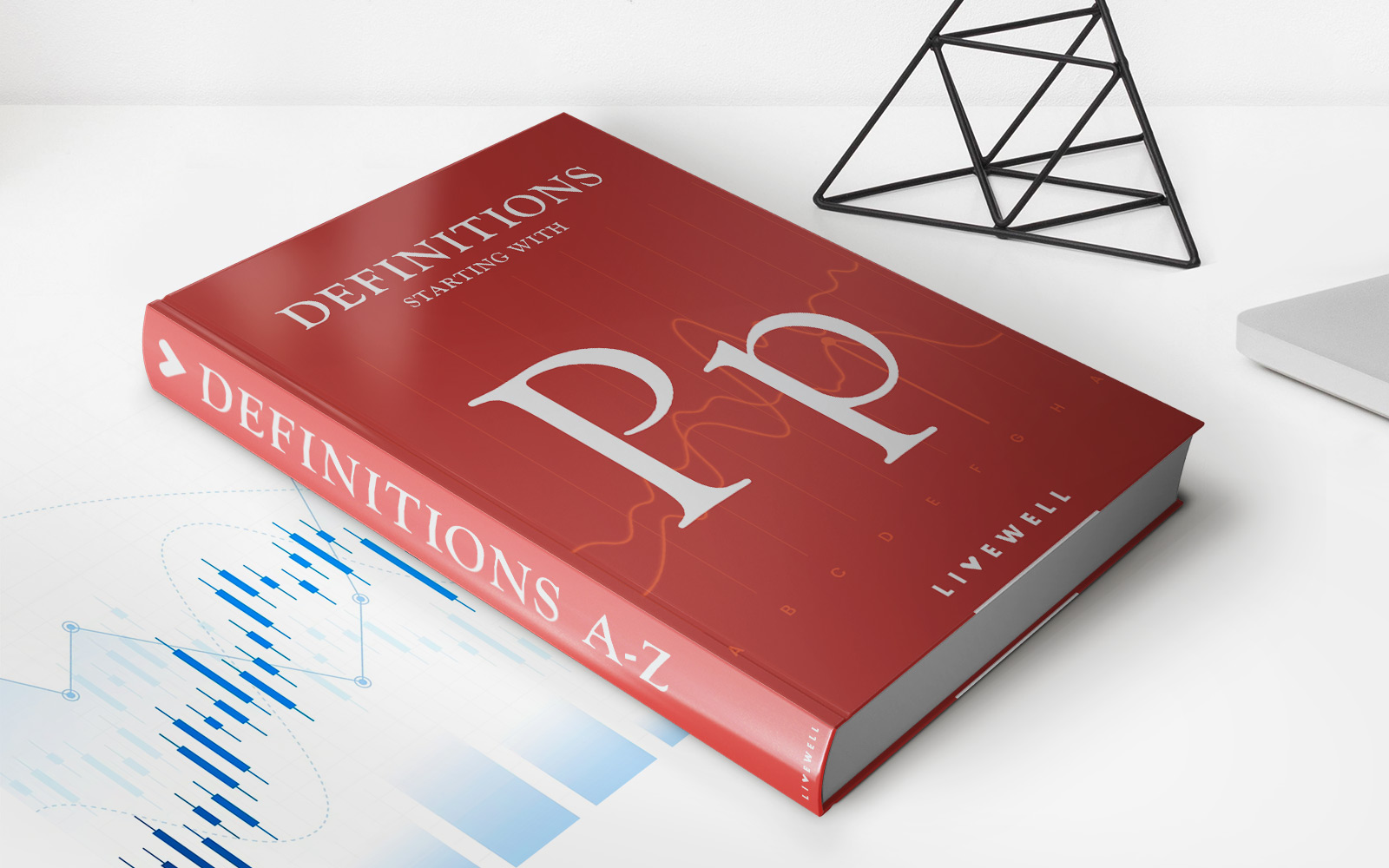Home>Finance>What Is A Certificate Of Coverage For Health Insurance


Finance
What Is A Certificate Of Coverage For Health Insurance
Modified: December 30, 2023
Discover the importance of a certificate of coverage for health insurance and how it relates to your finances. Learn how this document can protect you and provide peace of mind.
(Many of the links in this article redirect to a specific reviewed product. Your purchase of these products through affiliate links helps to generate commission for LiveWell, at no extra cost. Learn more)
Table of Contents
- Introduction
- Definition and Purpose of a Certificate of Coverage
- Key Information Included in a Certificate of Coverage
- Understanding Health Insurance Coverage Details
- How to Obtain a Certificate of Coverage
- Importance of Reviewing and Understanding the Certificate of Coverage
- Frequently Asked Questions about Certificates of Coverage
- Conclusion
Introduction
In today’s uncertain times, having proper health insurance coverage is crucial for individuals and families alike. However, navigating the complex world of health insurance can be overwhelming, especially when it comes to understanding the fine print and the details of your coverage.
One important document that plays a significant role in understanding your health insurance coverage is the Certificate of Coverage. This document provides detailed information about the benefits and limitations of your insurance plan, helping you make informed decisions about your healthcare.
In this article, we will explore the definition, purpose, and key information included in a Certificate of Coverage. We will also discuss the importance of reviewing and understanding this document, as well as how to obtain it. By the end, you will have a solid understanding of what a Certificate of Coverage is and why it is crucial for your health insurance needs.
So, let’s dive in and shed some light on this important aspect of health insurance!
Definition and Purpose of a Certificate of Coverage
A Certificate of Coverage is a document provided by your health insurance company that outlines the specific details of your insurance plan. It serves as a contract between you and the insurance provider, detailing the benefits, limitations, and coverage terms of your policy.
The primary purpose of a Certificate of Coverage is to clearly communicate the terms and conditions of your health insurance plan. It acts as a reference guide that helps you understand what services and treatments are covered, what costs are associated with your coverage, and any limitations or exclusions that may apply.
When you enroll in a health insurance plan, you are issued a Certificate of Coverage that outlines the terms specific to your policy. This document is legally binding and helps to ensure that both you and the insurance company are aware of the rights and responsibilities associated with the policy.
A Certificate of Coverage typically includes important information such as:
- Effective dates of coverage
- Specific benefits covered under the plan, such as hospital stays, doctor visits, prescription medications, and preventive care
- Out-of-pocket costs, including deductibles, copayments, and coinsurance
- Annual and lifetime coverage limits
- Network providers and coverage restrictions (if applicable)
- Exclusions or limitations on certain treatments, medications, or services
- Appeals and grievance procedures
It’s important to note that the details included in a Certificate of Coverage can vary depending on the specific insurance plan and provider. Therefore, it’s essential to carefully review and understand the information provided in your own Certificate of Coverage.
By having a comprehensive understanding of your Certificate of Coverage, you can better navigate the complexities of your health insurance and make informed decisions about your healthcare needs. It empowers you to utilize your benefits effectively and avoid any surprises or unexpected expenses that may arise.
Now that we have defined what a Certificate of Coverage is and its purpose, let’s explore the key information that is typically included in this document.
Key Information Included in a Certificate of Coverage
A Certificate of Coverage contains important information that helps you understand the details of your health insurance plan. This section will highlight the key information typically included in a Certificate of Coverage.
1. Effective Dates: The Certificate of Coverage will specify the start and end dates of your coverage. It is essential to note these dates to ensure you are covered during the specified period.
2. Covered Benefits: The document will outline the specific benefits and services that are covered under your health insurance plan. This may include hospital stays, doctor visits, maternity care, preventive screenings, prescription drugs, and more.
3. Cost-Sharing Details: Your Certificate of Coverage will provide information about your financial responsibilities, such as deductibles, copayments, and coinsurance. It is important to understand these cost-sharing details to know how much you are responsible for paying when you receive medical services.
4. Network Providers: If your health insurance plan has a network of preferred healthcare providers, the Certificate of Coverage will specify the names of in-network doctors, hospitals, and other healthcare facilities. It is essential to take note of these providers to ensure you receive the maximum benefit from your insurance coverage.
5. Out-of-Network Coverage: In addition to network providers, the Certificate of Coverage may also include information about coverage for out-of-network services. This section will highlight the expenses you may incur and the coverage limitations when receiving medical care from providers outside of your network.
6. Prior Authorization Requirements: Some health insurance plans require prior authorization before certain procedures, treatments, or medications are covered. Your Certificate of Coverage will outline any such requirements and the process to obtain authorization.
7. Exclusions and Limitations: It is crucial to be aware of the exclusions and limitations of your health insurance plan. The Certificate of Coverage will specify any medical services, treatments, or conditions that are not covered or have specific limitations.
8. Grievance and Appeals Procedures: In case you need to dispute a claim or have concerns about your coverage, the Certificate of Coverage will provide information on the grievance and appeals procedures. It will outline the steps you can take to address any issues or discrepancies.
By understanding and familiarizing yourself with the key information included in your Certificate of Coverage, you can make well-informed decisions about your healthcare and ensure you are utilizing your benefits effectively.
Next, we will delve into understanding the details of your health insurance coverage.
Understanding Health Insurance Coverage Details
When it comes to health insurance, understanding the details of your coverage is vital to make the most of your benefits. This section will provide insights into understanding the various aspects of your health insurance coverage.
1. Network Providers: Many health insurance plans have a network of preferred providers, including hospitals, doctors, and specialists. It is crucial to know which healthcare providers are in-network to receive the highest level of coverage at the lowest out-of-pocket cost. Using out-of-network providers may result in higher deductibles and coinsurance or limited coverage.
2. In-Network vs. Out-of-Network Coverage: When you receive medical care from providers within your insurance plan’s network, you generally have better coverage and lower costs. On the other hand, using out-of-network providers may result in higher out-of-pocket expenses. Understanding the differences in coverage between in-network and out-of-network services can help you make informed decisions about your healthcare.
3. Covered Services and Benefits: Familiarize yourself with the specific services and benefits covered by your insurance plan. This includes preventive care, hospital stays, doctor visits, prescription medications, mental health services, and more. Knowing your coverage details will help you plan and budget for any necessary healthcare expenses.
4. Deductibles, Copayments, and Coinsurance: These terms determine your financial responsibility for medical services. The deductible is the amount you must pay out-of-pocket before your insurance coverage kicks in. Copayments are fixed fees you pay for certain services, such as doctor visits or prescription medications. Coinsurance is the percentage of costs you are responsible for, typically after meeting your deductible. Understanding these costs will help you anticipate your expenses and budget effectively.
5. Out-of-Pocket Maximum: Your insurance plan may have an annual out-of-pocket maximum, which is the limit on the amount you will pay for covered services within a calendar year. Once you reach this limit, your insurance will cover 100% of eligible expenses. It’s important to know your out-of-pocket maximum to plan your healthcare expenses accordingly.
6. Preauthorization Requirements: Some healthcare services, such as surgeries or certain diagnostic tests, may require preauthorization from your insurance company. Preauthorization ensures that the services are necessary and covered under your policy. Failure to obtain preauthorization may result in denial of coverage or additional costs, so it’s important to understand and follow the preauthorization process.
7. Exclusions and Limitations: Your insurance plan will have specific exclusions and limitations on certain services, treatments, or conditions. These may include cosmetic procedures, alternative therapies, or pre-existing conditions. Be aware of these exclusions and limitations to avoid any surprises or unexpected out-of-pocket expenses.
Remember, each health insurance plan is unique, so it’s essential to carefully review your Certificate of Coverage and contact your insurance provider if you have any questions or need clarification.
Next, let’s explore how you can obtain a Certificate of Coverage.
How to Obtain a Certificate of Coverage
Obtaining a Certificate of Coverage for your health insurance plan is a straightforward process. Here are the steps you can follow to obtain this important document:
1. Contact Your Insurance Provider: Reach out to your health insurance provider’s customer service department. They will be able to assist you in obtaining a copy of your Certificate of Coverage. You may need to provide your policy information, such as your policy number or identification number, to facilitate the process.
2. Online Access: Many insurance companies have online portals or mobile apps that allow policyholders to access their policy documents and other relevant information. Check if your insurance provider offers this feature and log in to your account to access and download your Certificate of Coverage.
3. Request a Physical Copy: If you prefer to have a physical copy of the Certificate of Coverage, you can request one from your insurance provider. They will typically send it to you by mail or email, depending on your preference.
4. Employer-Sponsored Plans: If you have health insurance through your employer, the human resources or benefits department should be able to provide you with a copy of the Certificate of Coverage. Reach out to the appropriate contact within your organization to request this document.
5. Review and Keep it Handy: Once you have obtained your Certificate of Coverage, take the time to carefully review it. Familiarize yourself with the details of your health insurance plan, including the benefits, limitations, and coverage terms. Keep a copy of your Certificate of Coverage in a safe and easily accessible place for future reference.
Remember, the Certificate of Coverage is an essential document that outlines the specifics of your health insurance coverage. It is crucial to review and understand this document to make informed decisions about your healthcare and avoid any surprises or misunderstandings.
If you have any questions or need further clarification regarding your Certificate of Coverage, don’t hesitate to reach out to your insurance provider’s customer service team for assistance.
Now that we have covered how to obtain a Certificate of Coverage, let’s discuss the importance of reviewing and understanding this document.
Importance of Reviewing and Understanding the Certificate of Coverage
Reviewing and understanding your Certificate of Coverage is crucial for making informed decisions about your healthcare and maximizing the benefits of your health insurance plan. Here are some key reasons why it is important to thoroughly review and understand this document:
1. Knowing Your Coverage: The Certificate of Coverage provides detailed information about the specific benefits, limitations, and coverage terms of your health insurance plan. By reviewing this document, you can gain a clear understanding of what services, treatments, and medications are covered. This knowledge helps you make informed decisions about seeking medical care and utilizing your insurance benefits effectively.
2. Avoiding Surprises and Unexpected Costs: Understanding the details of your health insurance coverage helps you avoid any surprises when it comes to medical expenses. By knowing your copayments, deductibles, coinsurance, and coverage limits, you can plan your healthcare expenses and budget accordingly. This knowledge can also help you avoid costly out-of-network services or procedures that may not be covered under your plan.
3. Maximizing Benefits: Familiarizing yourself with your Certificate of Coverage allows you to maximize the benefits provided by your health insurance plan. You can identify the network providers and facilities that offer the highest level of coverage to ensure you receive the best care at the most affordable cost. Additionally, understanding any preauthorization requirements helps you obtain necessary approvals and avoid claim denials.
4. Appropriate Utilization of Services: The Certificate of Coverage outlines the coverage details for various services and treatments. By understanding these details, you can make informed decisions regarding your healthcare. For example, you can determine if a specific test, treatment, or medication is covered and explore alternative options if necessary. This helps you make healthcare choices that align with your needs and your insurance coverage.
5. Resolving Disputes and Appeals: In the unfortunate event that you encounter issues with your health insurance coverage, such as claim denials or disputes, understanding your Certificate of Coverage becomes even more important. This document outlines the grievance and appeals procedures, providing guidance on how to address any discrepancies or concerns. By being familiar with these procedures, you can navigate the resolution process more effectively.
Remember, your health insurance plan and coverage can have a significant impact on your financial and physical well-being. Taking the time to thoroughly review and understand your Certificate of Coverage empowers you to make informed decisions about your healthcare and avoid any unnecessary stress or financial burdens.
If you have any questions or concerns about your Certificate of Coverage, don’t hesitate to reach out to your insurance provider. They can provide further clarification and help you navigate the intricacies of your health insurance plan.
Next, we will address some frequently asked questions about Certificates of Coverage.
Frequently Asked Questions about Certificates of Coverage
Here are some commonly asked questions about Certificates of Coverage:
1. What is the difference between a Certificate of Coverage and an Insurance Policy?
A Certificate of Coverage is a document issued to an individual or group covered by a health insurance plan. It provides specific details about that individual or group’s coverage, including benefits, limitations, and terms. An Insurance Policy, on the other hand, is a comprehensive document that outlines the terms and conditions of the insurance contract between the policyholder and the insurance company. It includes information about multiple types of coverage, not just health insurance.
2. How often should I review my Certificate of Coverage?
It is a good practice to review your Certificate of Coverage annually, especially during open enrollment periods when you can make changes to your health insurance plan. However, it’s also important to review your coverage whenever you have a major life event, such as a marriage, childbirth, or a change in employment, as these events can impact your insurance needs and coverage.
3. What if I don’t understand something in my Certificate of Coverage?
If you come across something you don’t understand in your Certificate of Coverage, it is recommended to contact your insurance provider directly for clarification. They can explain the terms, benefits, and limitations of your coverage and address any questions or concerns you may have. It’s always better to seek clarification to ensure you have a clear understanding of your health insurance coverage.
4. Can my health insurance coverage change without notice?
Health insurance coverage can change, but typically, insurance providers are required to give notice of any significant changes in coverage terms or benefits. This can occur during open enrollment or when a plan is being renewed. It is important to review any notices or updates from your insurance provider to stay informed about changes to your coverage.
5. Can I make changes to my coverage after reviewing my Certificate of Coverage?
Depending on your specific health insurance plan, you may have opportunities to make changes to your coverage during open enrollment periods or certain qualifying life events. These changes may include switching to a different plan, adding or removing dependents, or adjusting coverage levels. Check with your insurance provider for the specific guidelines on making changes to your coverage.
6. What should I do if I notice a mistake or discrepancy in my Certificate of Coverage?
If you identify any mistakes or discrepancies in your Certificate of Coverage, it’s important to contact your insurance provider immediately. They can investigate the issue, make any necessary corrections, and provide you with an updated document, if required. It’s crucial to ensure that the information in your Certificate of Coverage accurately reflects your coverage and eliminates any potential misunderstandings or errors.
Remember, while these FAQs provide general guidance, it’s essential to refer to your specific health insurance plan and consult with your insurance provider for personalized information and clarifications regarding your Certificate of Coverage.
Now, let’s summarize the key points we have discussed about Certificates of Coverage.
Conclusion
A Certificate of Coverage is a crucial document that provides detailed information about your health insurance plan. By reviewing and understanding this document, you can make informed decisions about your healthcare, maximize your benefits, and avoid surprises or unexpected costs.
In this article, we explored the definition and purpose of a Certificate of Coverage. We discussed the key information typically included in this document, such as coverage details, network providers, cost-sharing responsibilities, and preauthorization requirements.
We emphasized the importance of reviewing your Certificate of Coverage to gain a thorough understanding of your health insurance coverage. By knowing your benefits, limitations, and coverage terms, you can confidently navigate the complexities of the healthcare system and take control of your healthcare decisions.
We also provided insights into how to obtain a Certificate of Coverage and the significance of keeping a copy readily available for reference.
Additionally, we addressed frequently asked questions about Certificates of Coverage, ensuring that readers have a clear understanding of the document and its implications.
Remember, your health insurance coverage is a valuable asset that protects you and your loved ones from financial hardship in the event of a medical need. Taking the time to read and understand your Certificate of Coverage is an investment in your health and financial well-being.
If you have any questions or concerns about your health insurance coverage, it’s always wise to reach out to your insurance provider for clarification. They can provide the necessary guidance and support to help you make the most of your coverage.
So, review your Certificate of Coverage, ask questions, and confidently navigate your health insurance to ensure peace of mind and the best possible healthcare outcomes for you and your family.














